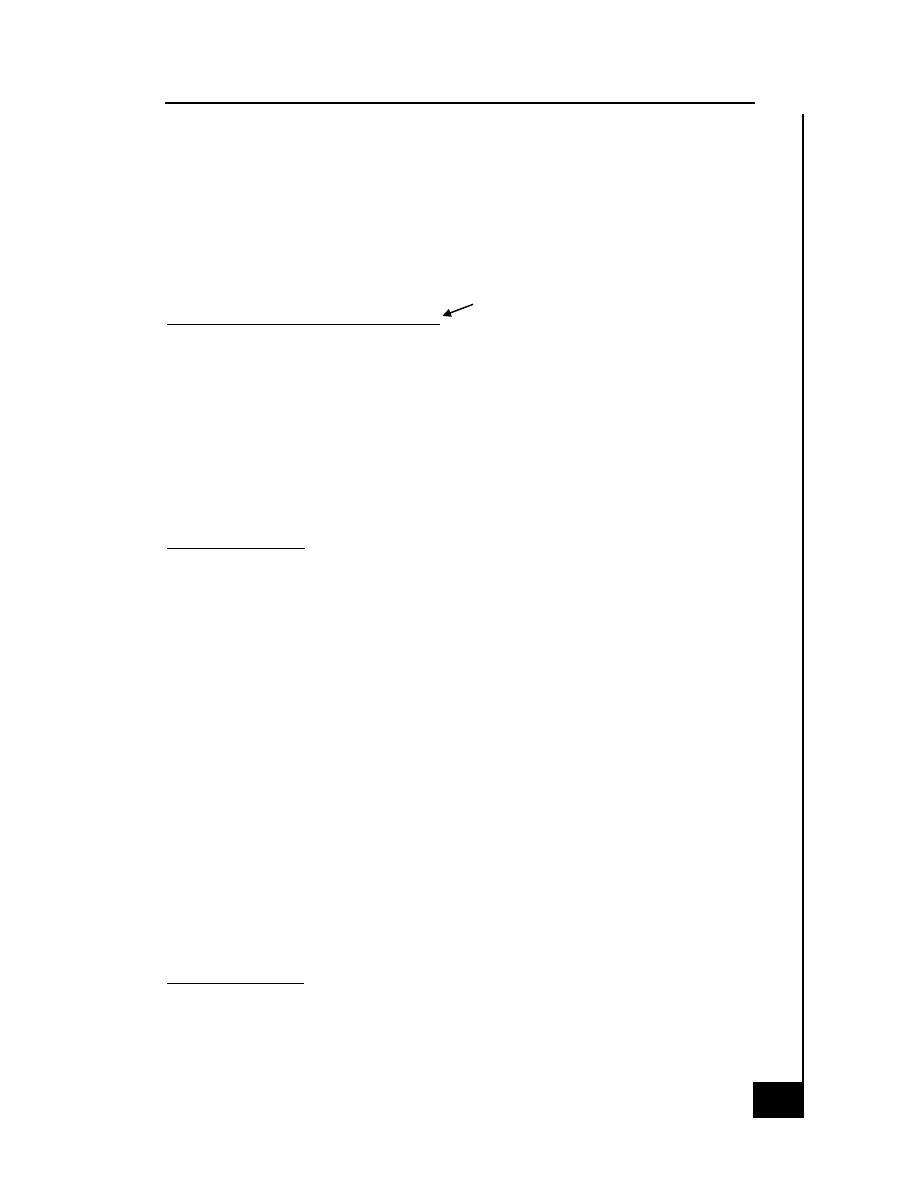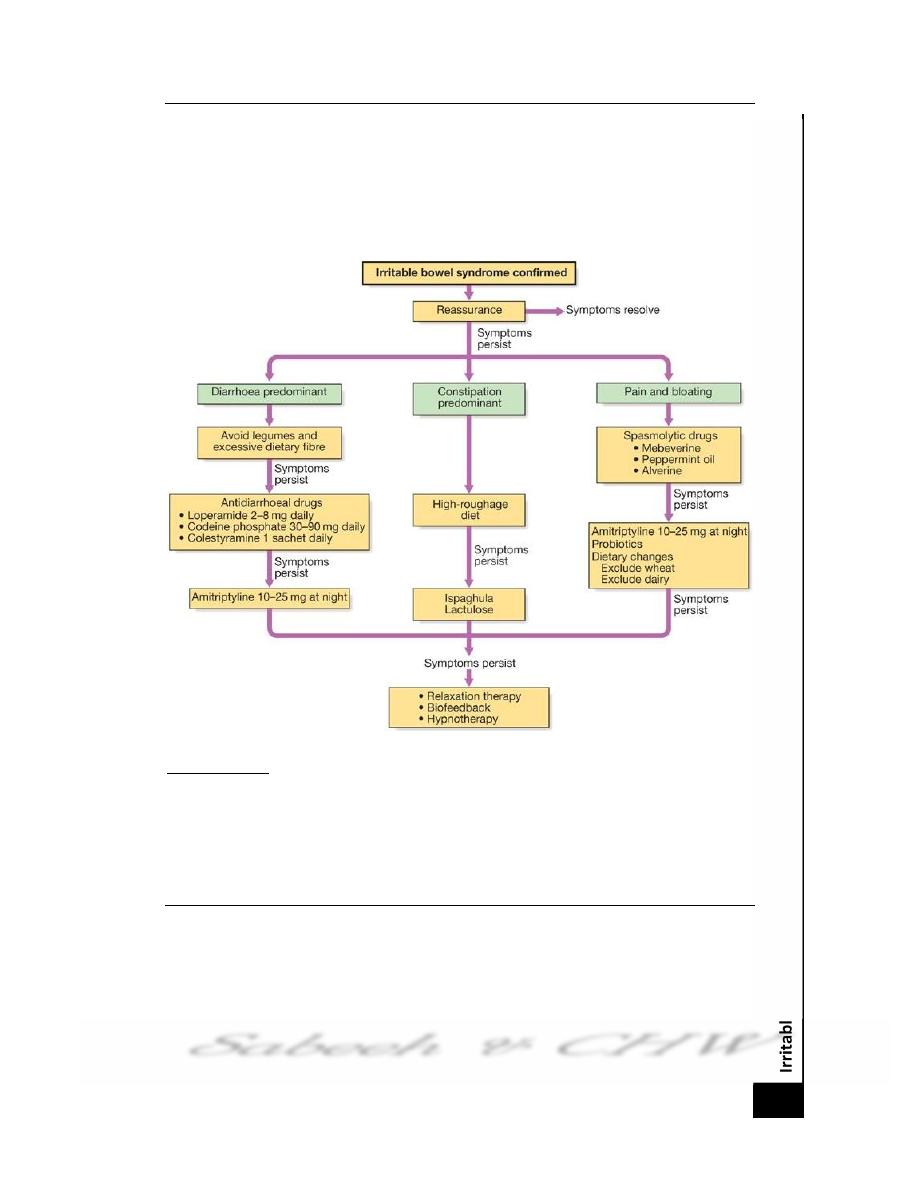
1
Medicine
د. رﺑﺎح
Lecture 65
IRRITABLE BOWEL SYNDROME
· Irritable bowel syndrome (IBS) is a functional bowel
disorder characterized by abdominal pain or discomfort
and altered bowel habits in the absence of detectable
structural abnormalities
· Approximately 20% of the general population fulfil
diagnostic criteria for IBS but only 10% of these consult
their doctors because of gastrointestinal symptoms.
· Female predominant
Etiology
The pathogenesis of IBS is poorly understood
· Psychosocial factors
Anxiety
Depression
Somatization and neurosis
· Altered gastrointestinal motility
No consistent evidence of abnormal motility
· Altered visceral sensation
A consequence of altered central nervous system
processing of visceral sensation.
· Luminal factors
o Following an episode of gastroenteritis
o Intolerant of specific dietary components,
particularly lactose and wheat
o Gut microflora
· Neurotransmitter change
o 5HT
Clinical features
· Colicky abdominal pain
· Altered bowel habit
· Abdominal distension

Ir
rita
bl
e
Bow
el
S
yn
dr
ome
Lecture 65
Medicine
Dr. Rabah
2
· Rectal mucus
· Feeling of incomplete defecation
Abdominal Pain
· Hypogastrium in 25%
· The right side in 20%
· To the left side in 20%
· Epigastrium in 10%
· Episodic and crampy
· May be mild enough to be ignored or it may interfere
with daily activities.
· Pain is often exacerbated by eating or emotional stress
and improved by passage of flatus or stools
· Sleep deprivation is also unusual
Altered Bowel Habits
· The most common pattern is constipation alternating
with diarrhea, usually with one of these symptoms
predominating.
· Stools are usually hard with narrowed caliber
· Diarrhea resulting from IBS usually consists of small
volumes of loose stools
· Nocturnal diarrhea does not occur
· Diarrhea may be aggravated by emotional stress or
eating.
· Stool may be accompanied by passage of large amounts
of mucus
Gas and Flatulence
Abdominal distention
Increased belching
Flatulence,
Increased gas.
Normal amount of intestinal gas.
Most IBS patients have impaired transit and tolerance of
intestinal gas loads.
The diagnosis
Is clinical with excluding secondary disease if needed
Features supporting a diagnosis of IBS
· Symptoms
>
6
months
without
progressive

Ir
rita
bl
e
Bow
el
S
yn
dr
ome
Lecture 65
Medicine
Dr. Rabah
3
deterioration,
· Absence of other systemic symptoms such as fever and
weight loss
· Small-volume stool without any evidence of blood.
· Frequent consultations for non-GI problems
· Previous medically unexplained symptoms
· Stress worsens symptoms
Diagnostic Criteria (Rome)
Recurrent abdominal pain or discomfort at least 3 days per
month in the last 3 months associated with two or more of the
following:
1. Improvement with defecation
2. Onset associated with a change in frequency of stool
3. Onset associated with a change in form (appearance) of
stool
Investigation
Minimal for typical symptom
If we need:
· Full blood count
· GSE
· Lower GI endoscopy
(sigmoidoscopy, Colonoscopy)
Alarm features.
Diarrhoea-predominant
Alarm features
· Age > 50 years; male gender
· Weight loss
· Nocturnal symptoms
· Family history of colon cancer
· Anemia
· Rectal bleeding
Management
· Diagnosis
· Reassure the patient and
· Dietary alteration
ھﺳ
ﺔ
ﺣﯾدر ﻋﻠﻲ ﯾﺧﺑﺻﻧﺎ
J

Irri
ta
bl
e B
ow
el
S
ynd
ro
me
Lecture 65
Medicine
Dr. Rabah
4
Wheat-free diet
Lactose exclusion
· Treatment of the predominant symptoms
· Therapy with tricyclic antidepressant
· 5-HT4 antagonists
· Psychological interventions
Prognosis
· Most patients have a relapsing and remitting course.
Exacerbations often follow stressful life events,
occupational dissatisfaction and difficulties with
interpersonal relationships
the end of this lecture
Sabeeh & CHW
